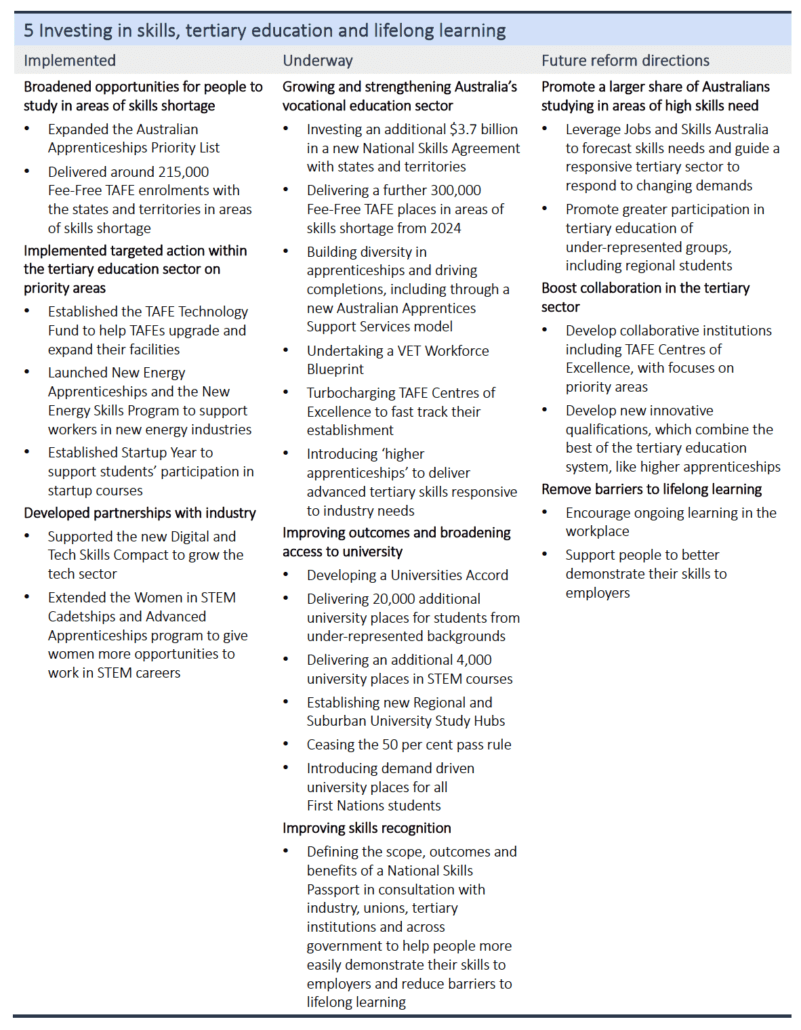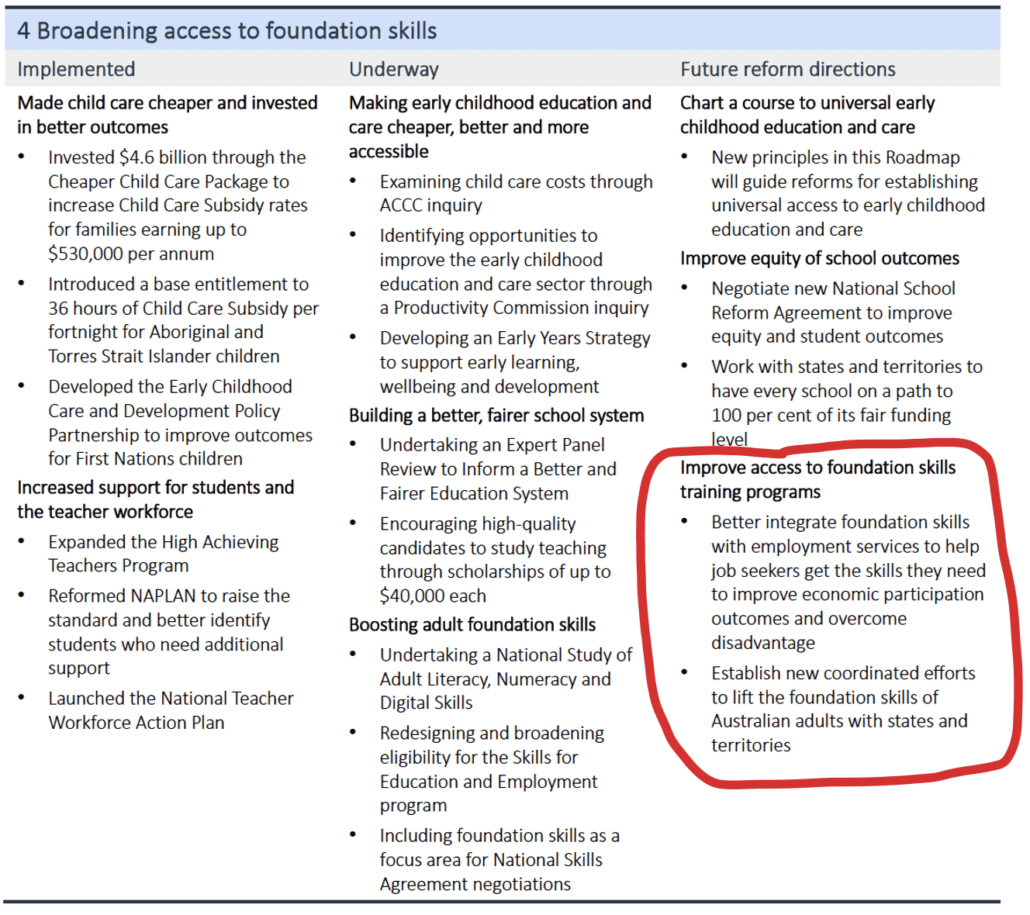
Employment White Paper – what it means for VET and higher education
This week saw the release of the government’s White Paper on Employment, Working Future.
For those wanting radical change – the White Paper is not a major departure from existing government policies in the skills and higher education sectors (see below for a summary), but that does not mean changes are not coming.
You can expect change – if you offer training to unemployed workers, if you work in the apprenticeships sector, or if you work in the international VET sector. Albeit these changes will be announced outside of the Employment White Paper.
What the White Paper makes clear is that the government’s soon to be released Migration Strategy will play a critical role in relation to Skilled Migration (and there is some talk that when it is released the Migration Strategy will also include further restrictions on private VET providers).
The government is also expected to pursue reforms to the employment services sector, after it receives the report of the Workforce Australia Employment Services inquiry being led by Labor backbencher, Julian Hill MP.
And the White Paper also notes the reforms being made in the apprenticeships sector with the changes to the Australian Apprentices Support Services model.
So it appears there will be more changes coming in relation to employment, skills and higher education and some of these could be quite significant.
Note also that while the White Paper refers to the new National Skills Agreement, which was expected to commence from January 2024, I now think the start date is more likely to be 1 July 2024. That is because in the last few days the Minister for Skills and Training, Brendan O’Connor has announced new funding for additional Fee Free TAFE places in Western Australia and South Australia – which will start from 1 January 2024. I expect other States and Territories will also receive some additional interim funding – prior to the next multi-year National Skills Agreement being finalised.
The White Paper also includes funding for consultations on a National Skills Passport, and understandably, a number of people have asked me if this is simply a ‘rebrand’ of the existing Unique Student Identifier?
Given the references in the White Paper to the work the Singapore government has done with its Skills Future reforms(which include a digital skills passport) and the fact that some non-accredited training is funded by the Singaporean government and included in their passport – this is where an Australian skills passport would step beyond the USI and where consultations might be focussed (ie whether or not to include some types of non-accredited training in the passport)?
The other ‘sort of new’ initiative is the introduction of more higher apprenticeships at degree level which the government wants the new TAFE Centres of Excellence to be “instrumental in delivering” (note that the government also foresees a role for universities to partner with TAFE and industry through these Centres of Excellence so the higher apprenticeships may not be solely delivered by TAFE). There is no mention of employers being able to partner with private VET or higher education providers in the delivery of higher apprenticeships.
The White Paper actions relevant to VET and higher education providers are:







